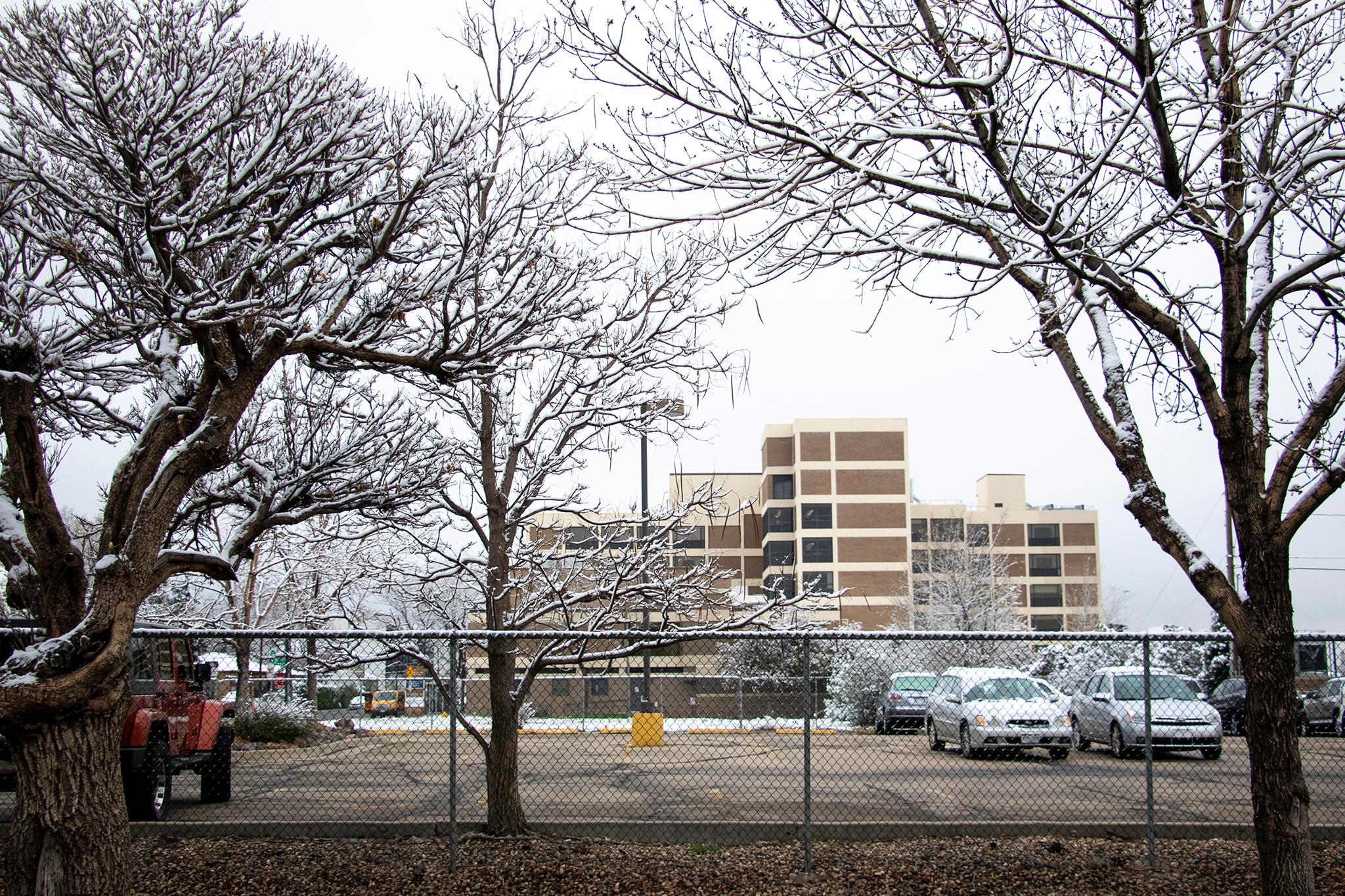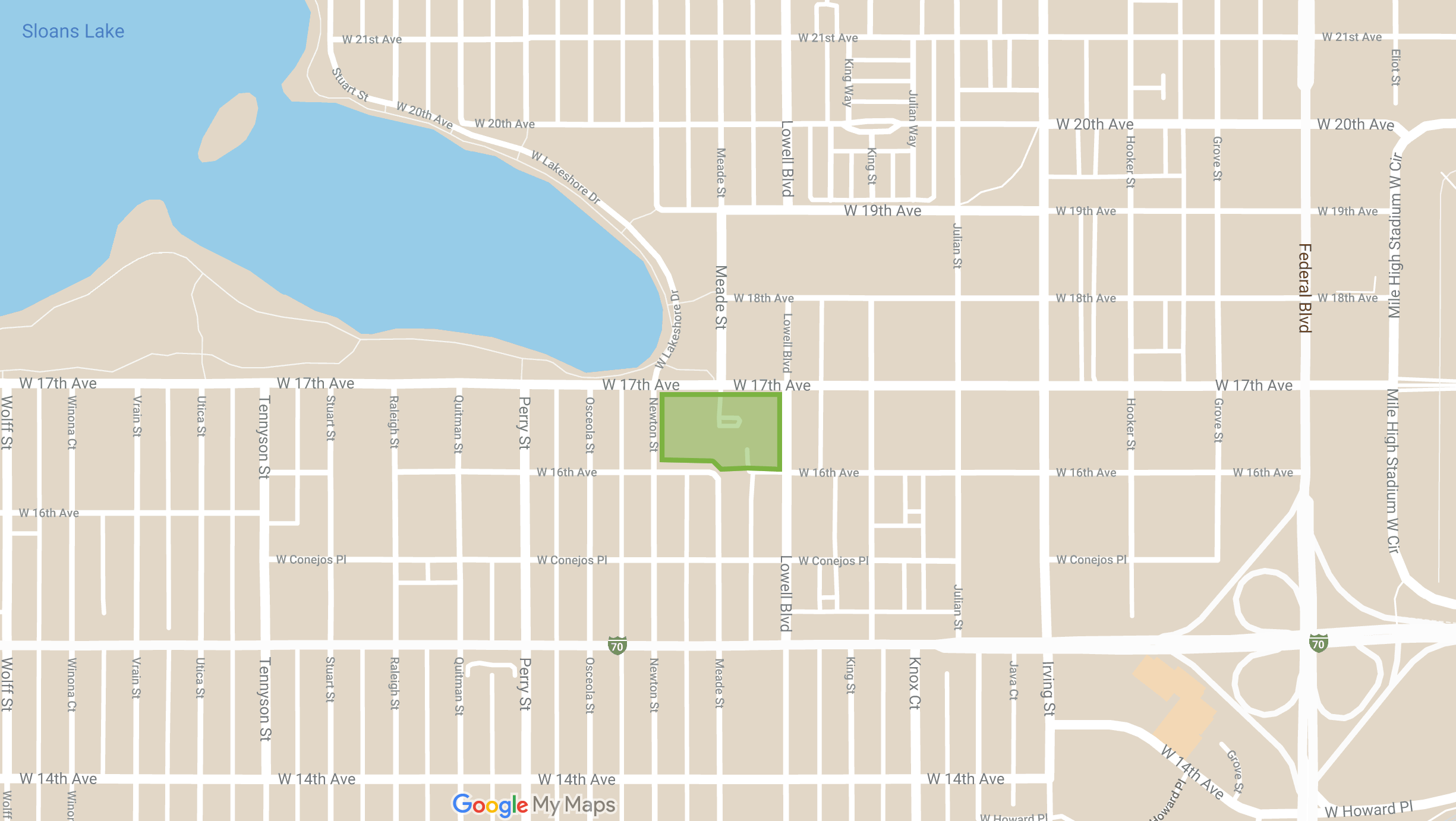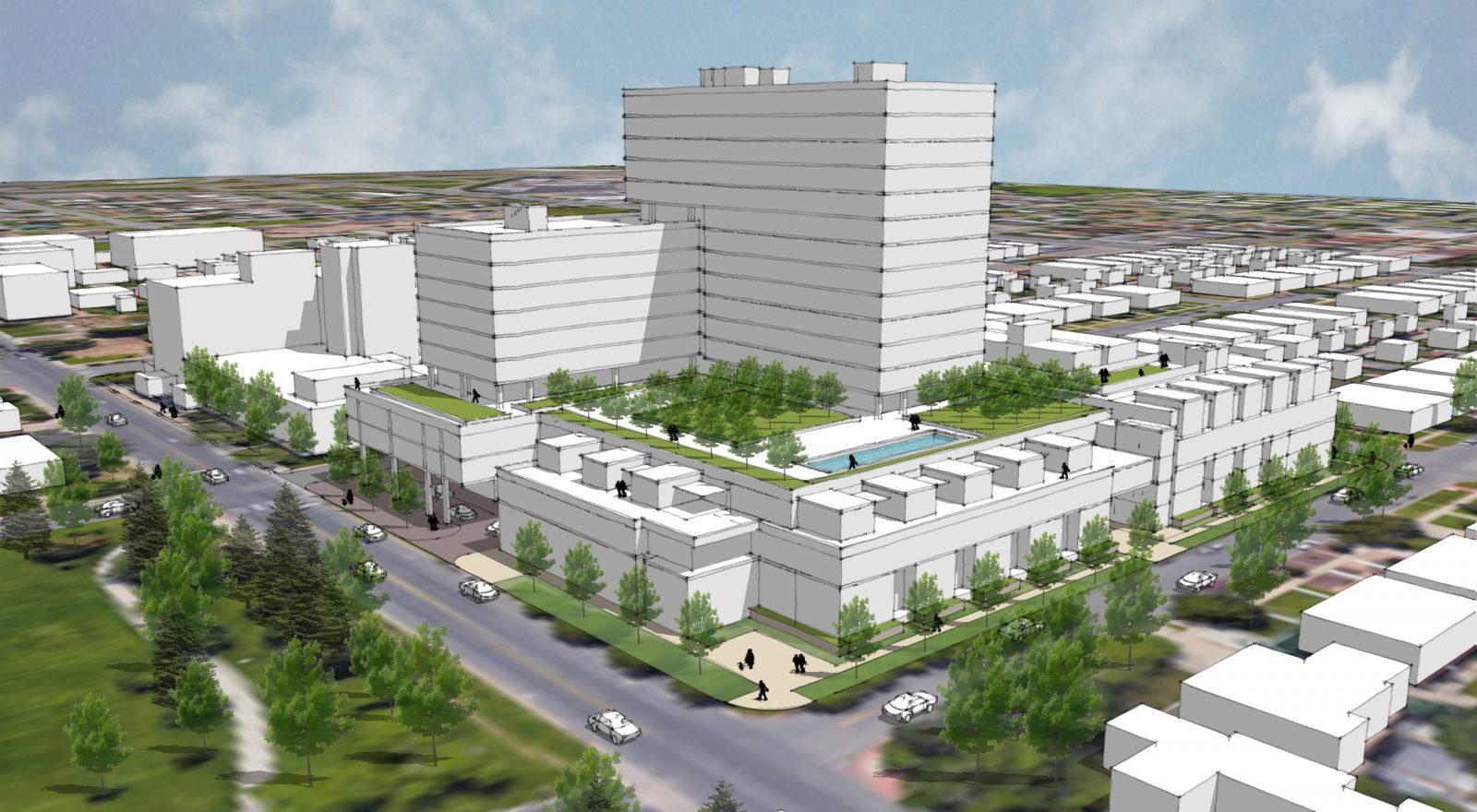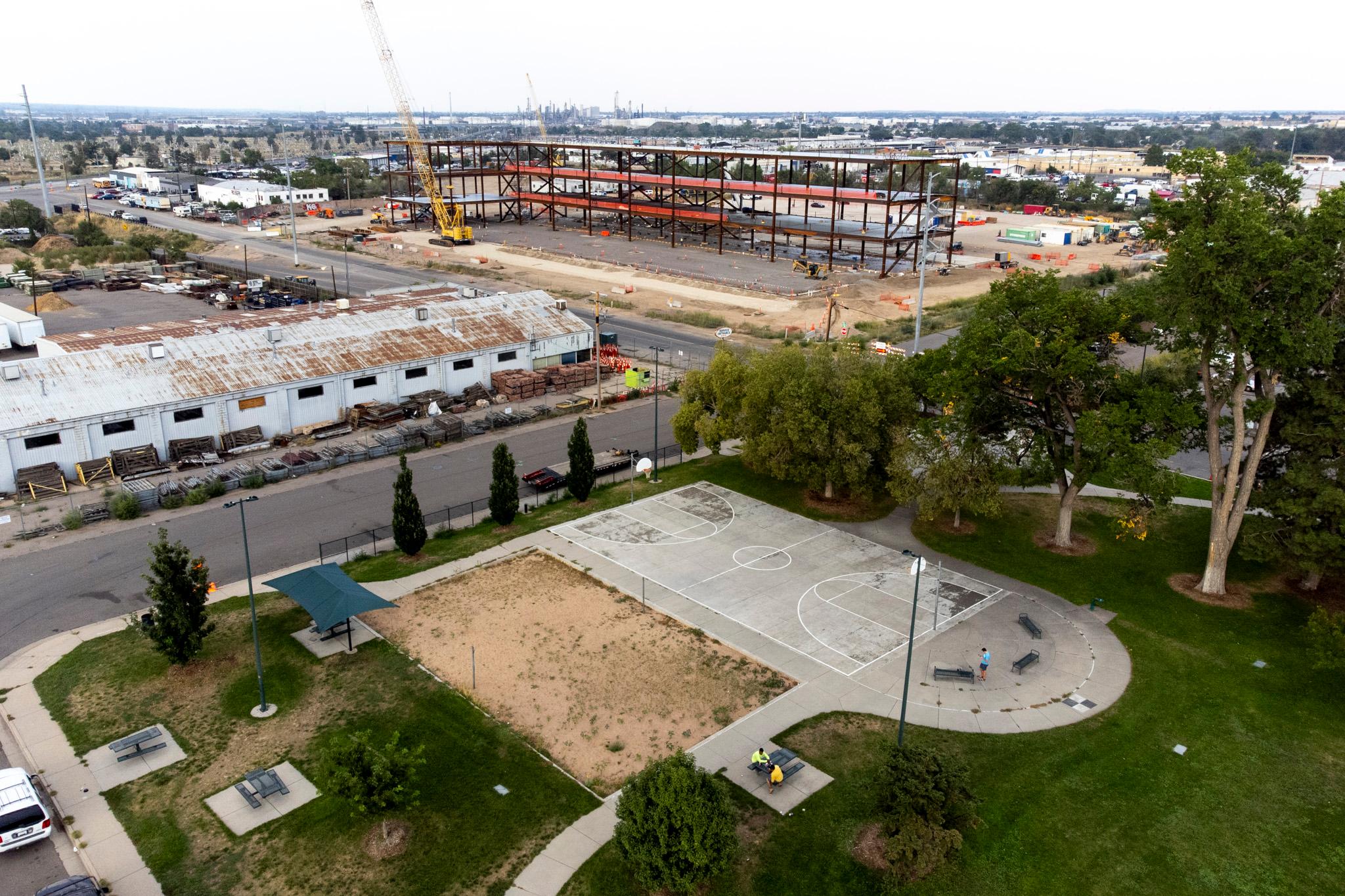The two sides sparring against one another in front of the Denver City Council late into the night Monday had loads to say about why 320 homes should and should not be built atop a parking lot at 17th and Newton in West Colfax.
But in a nutshell:
Some West Colfax and Sloan's Lake locals said they support more housing and affordable homes, just not in their neighborhood at the scale proposed by the developer.
Zocalo Community Development, the homebuilder, said it needs extra height to build market-price homes. The developer wants to use those profits to fund 160 condos and apartments for people who aren't rich.
The West Colfax Association of Neighbors and Sloan's Lake Neighborhood Association came out swinging against the development. In the end, the Council decided that Zocalo's proposal fits with growth plans on the books -- and that Denver's need for affordable housing outweighed locals' concerns over views, parking shortages, traffic and open space.
"If an underutilized, weed-strewn parking lot can't support affordable housing, what can?" Zocalo principal David Zucker said in an interview.


The developer has plans for a cluster of buildings ranging from three stories to 16, with 320 apartments and condos, 160 priced for lower income residents. Homes, businesses and a community space will take up 515,000 square feet when all is said and done.
Neighborhood groups opposed to the project lost their bid to kill it when Council members OK'd new framework that lets Zocalo build 16 stories high. Prior to Monday night, the site only allowed medical structures up to 10 stories high because of a 1970s hospital expansion that never materialized.
"We cannot build housing fast enough in this city," City Councilwoman Debbie Ortega said to Zucker. "I think the commitment that's being made that is above and beyond the normal ask shows a genuine commitment on your part to be part of the solution."
The developer faced an uphill climb. Enough nearby residents opposed the change to require a supermajority of 10 votes. He got 10. City Councilman Wayne New voted against it. City Councilman Paul López was barred from voting because he sponsored the application. Councilman Albus Brooks was absent.
City Councilman Rafael Espinoza voted for the project despite plenty of skepticism. The market-rate units "only adds pressure to those remaining modest homes to turn into the next market-rate homes," he said, referring to real estate speculation.
He was comfortable in the end, he said, because the zoning is prescriptive and allows little wiggle room.
Supporting development and affordable housing -- in theory -- was a common mantra by the opposition.
"But I oppose this rezoning and building plan because it is dangerously out of scale and incompatible with this neighborhood," said westsider Dan Larson.
"In no way, shape or form could we imagine a plan of such scale," Britt Nemeth said.
Zucker maintained that the height is the "financial engine" that allows 160 for-rent and for-sale units affordable to households making 60 percent of the area median income or less -- between $29,000 and $43,000 a year for a household of two.
Neighbors accused Zucker of disguising profit for altruism by including affordable housing. Zucker said his proposal is a model for other neighborhoods in the city that's in need of 30,000 below-market homes, according to a housing report by the Hancock administration.
"Zocalo wants to do this project because we love the city and we want to create a city even more diverse than it is today," Zucker said.
High-ranking members of WECAN broke with their neighborhood organizations to endorse the rezoning in the name of affordable housing, diversity and density that encourages walking.
Megan Yonke, vice president of WECAN, sided with Zocalo during Monday's public hearing.
So did co-president Jessica Dominguez, a Denver Public Schools teacher turned affordable housing advocate. She said her neighbors do not speak for the entire neighborhood -- that non-whites and people who make less money, including families of her former students, would love to live at a reinvented 17th and Newton.
"We need safe, affordable housing because it is the foundation which dictates all quality of life metrics," Dominguez said.
Here's the breakdown for income restrictions for for-rent homes, according to the Zocalo application:
- At least 128 homes would serve people making 60 percent of the area median income, or about $43,000 for a household of two. At least 13 apartments would have two bedrooms.
- At least 24 homes would serve people making 50 percent of the area median income, or about $36,000 for a household of two. At least two units would have two bedrooms.
- At least 8 homes would serve people making 40 percent of the area median income, or about $29,000 for a household of two. At least seven units would have three bedrooms.
And here are the income for for-sale homes:
- At least 8 homes would serve people making the area median income -- $72,000 for a household of two -- or less. At least six units would have two bedrooms and at least two units would have three bedrooms.













